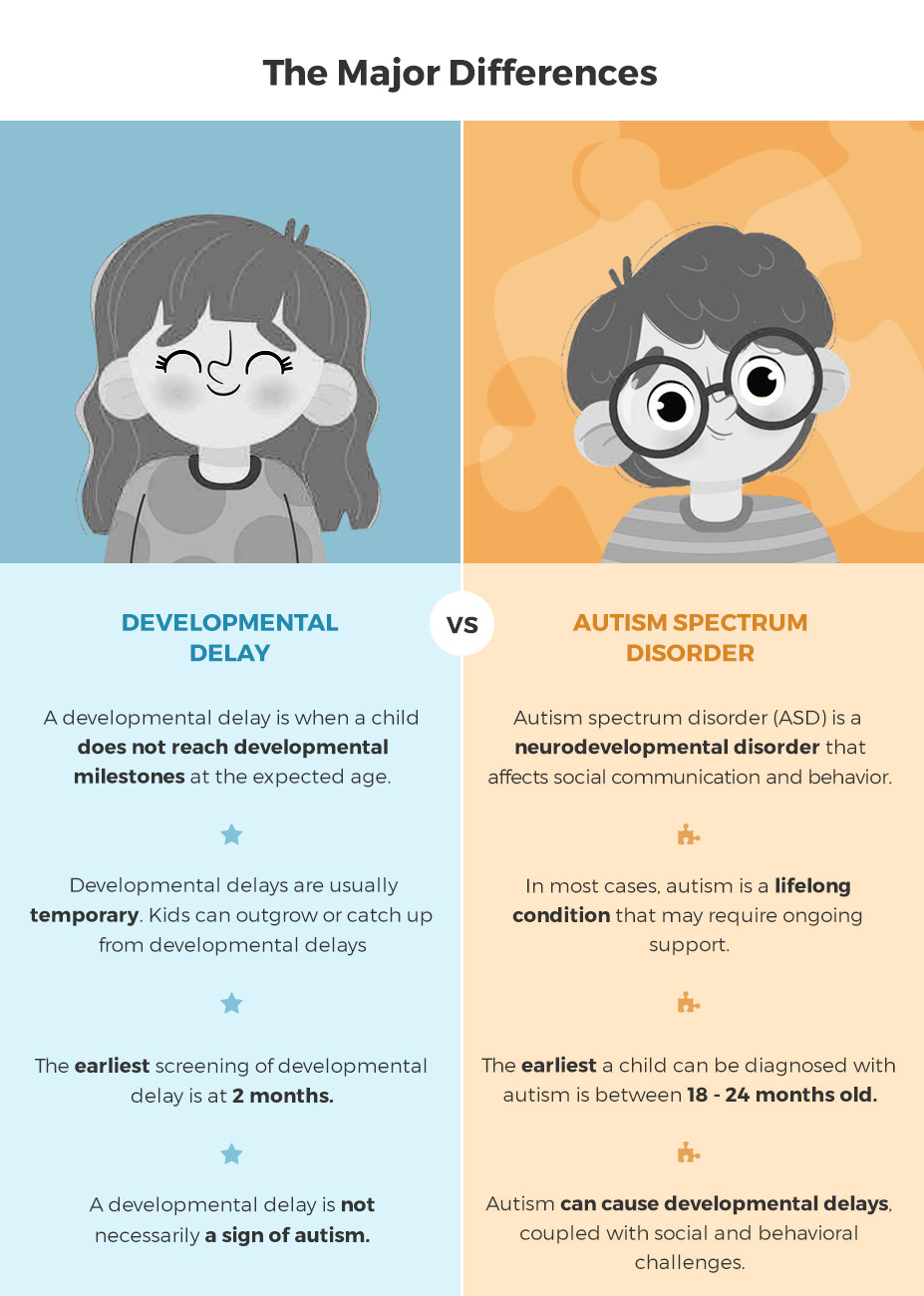How to design sensory-friendly spaces with advice from an Autism Therapist
How to design sensory-friendly spaces with advice from an Autism Therapist
Blog Article
Secret Symptoms And Signs to Recognize in Individuals With Behavioral Autism
When you come across somebody with behavior autism, identifying vital signs and signs is crucial. You might notice challenges in social interactions and communication, in addition to a strong demand for routines. Additionally, sensory sensitivities can result in overwhelming experiences. Understanding these qualities can improve your support and interventions, but there's more to uncover about just how these actions materialize in daily situations. Allow's explore what these indications really appear like.
Obstacles in Social Communications
When you interact with somebody on the autism spectrum, you may discover they struggle with social hints and interaction. These difficulties can make social communications really feel overwhelming for them.
When they do engage, they may chat about their passions in excellent detail without discovering if you're interested. Comprehending these obstacles can help you approach interactions with compassion and perseverance, promoting an extra comfortable environment for both of you.
Difficulty With Verbal and Non-Verbal Communication

Non-verbal interaction can be much more challenging. You could see a lack of eye call or minimal use of motions, which can make communications feel uncomfortable. Faces might not always straighten with the discussion, resulting in confusion concerning their feelings. Identifying these signs is essential, as it aids you better assistance and engage with individuals on the autism range. By recognizing their communication obstacles, you can foster extra meaningful links and offer a much more supportive atmosphere.
Recurring Behaviors and Regimens
Interaction obstacles commonly accompany other indicators of autism, such as repetitive actions and a strong choice for regimens. You could notice that individuals with autism commonly engage in specific, repeated actions, like hand-flapping, rocking, or duplicating phrases. These habits can provide convenience and a feeling of control in a typically frustrating world.
Regimens are just as vital; many people thrive when they comply with an organized timetable. You might find that changes to these routines can result in significant distress. For instance, if they have an everyday ritual of consuming breakfast at a details time or adhering to a particular path to college, any kind of disturbance can create anxiousness.
Acknowledging these patterns assists you understand their actions and offer support. By accommodating their need for regular and enabling recurring activities, you can produce a more comfy atmosphere that reduces their obstacles.
Sensory Level Of Sensitivities

Usual Sensory Triggers
Sensory level of sensitivities can considerably affect day-to-day live for people with autism, as certain stimulations commonly cause frustrating responses. Typical sensory triggers consist of loud noises, intense lights, and strong scents. You might observe that abrupt audios, like sirens or alarm systems, trigger anxiety or distress. In a similar way, fluorescent lighting in shops can really feel awkward and extreme. Structures can additionally play a considerable duty; rough materials or specific food appearances may be excruciating for you. Additionally, crowded places can overwhelm your senses, making it tough to kick back or concentrate. Recognizing these triggers can aid you manage your atmosphere better. By understanding what influences you, you can take actions to minimize discomfort and enhance your everyday experiences.
Behavior Actions Described
Recognizing your behavioral feedbacks to sensory sensitivities is essential, as they usually disclose just how you engage with the globe. You may additionally locate yourself looking for particular sensory experiences, like deep stress or quiet settings, to aid find more info ground on your own. Recognizing these patterns aids you recognize your demands far better and can direct just how you communicate them to others.
Coping Techniques Overview
Acknowledging your sensory sensitivities is just the first step; now it's time to explore coping strategies that can help you manage those experiences successfully. Start by creating a sensory toolkit customized to your demands. Developing a structured routine can likewise offer predictability, decreasing stress and anxiety around sensory overload.
Restricted Rate Of Interests and Emphasis
While numerous individuals create a wide variety of interests, those with autism frequently demonstrate limited passions and an intense focus on particular subjects. You might notice that a person with autism can invest hours delving right into their favored topic, whether it's a particular type of train, a particular movie, or a clinical idea. This intense focus isn't simply a pastime; it can become a main part of their identity and social interactions.
You may locate that conversations focus on these interests, click here for info and they might have a hard time to take part in more comprehensive topics. For them, these concentrated rate of interests offer convenience and a sense of mastery. While it is very important to urge exploration of brand-new subjects, valuing their passions is similarly vital. By understanding and recognizing these limited interests, you can cultivate a helpful setting where they feel valued and recognized, permitting more purposeful connections and communications.
Emotional Policy Problems
People with autism often face challenges in emotional guideline, which can be affected by their intense concentrate on certain passions. You could see that when a person is deeply taken part in a favored task, they can experience solid feelings, whether enjoyment or irritation. This strength often makes it difficult for them to move gears or manage their sensations when points don't go as planned.

Variability in Developing Milestones
When it comes to developmental landmarks, you'll observe that people with autism usually reveal a vast array of irregularity. You may see a kid succeed in language abilities but struggle with social interactions.
It's vital to acknowledge that each individual's journey is special. Some may establish complicated skills early, only to encounter obstacles later. Others may take longer to attain basic turning points however then prosper in details areas. Observing these patterns can help you understand their toughness and needs much my site better.
Regularly Asked Questions
Just How Is Autism Diagnosed in Children and Adults?
To detect autism in kids and grownups, experts assess habits, communication skills, and social communications. They commonly make use of standard examinations, meetings, and monitorings to establish if a specific fulfills the criteria for autism spectrum problem.
Are There Various Types of Autism Range Disorders?
Yes, there are various kinds of autism range conditions, consisting of Asperger's syndrome and prevalent developing disorder-not otherwise specified. Each kind varies in extent and characteristics, so understanding these differences can help you far better assistance individuals with autism.
What Therapies Work for People With Autism?
When considering reliable therapies for people with autism, you'll discover choices like Applied Habits Evaluation, speech treatment, and job-related treatment. Each strategy can help enhance communication, social skills, and daily operating customized to private requirements.
Can People With Autism Lead Independent Lives?
Yes, individuals with autism can lead independent lives. With the ideal assistance, abilities training, and resources, you can help them create self-sufficiency, handle day-to-day tasks, and prosper in various atmospheres, promoting their independence.
How Can Households Support Liked Ones With Autism?
You can sustain your loved ones with autism by producing a structured setting, motivating their interests, practicing patience, cultivating interaction, and advertising social skills. Commemorate their success, regardless of how little, and build an encouraging area.
Although many people on the autism range can recognize and use language, they typically deal with significant obstacles with both spoken and non-verbal interaction. Recognizing these signs is essential, as it helps you better assistance and involve with individuals on the autism spectrum. You might notice that people with autism often involve in details, repetitive activities, like hand-flapping, shaking, or repeating phrases.Sensory level of sensitivities can considerably affect everyday life for individuals with autism, as certain stimulations usually cause frustrating responses.When it comes to developmental milestones, you'll notice that people with autism commonly show a wide array of irregularity.
Report this page